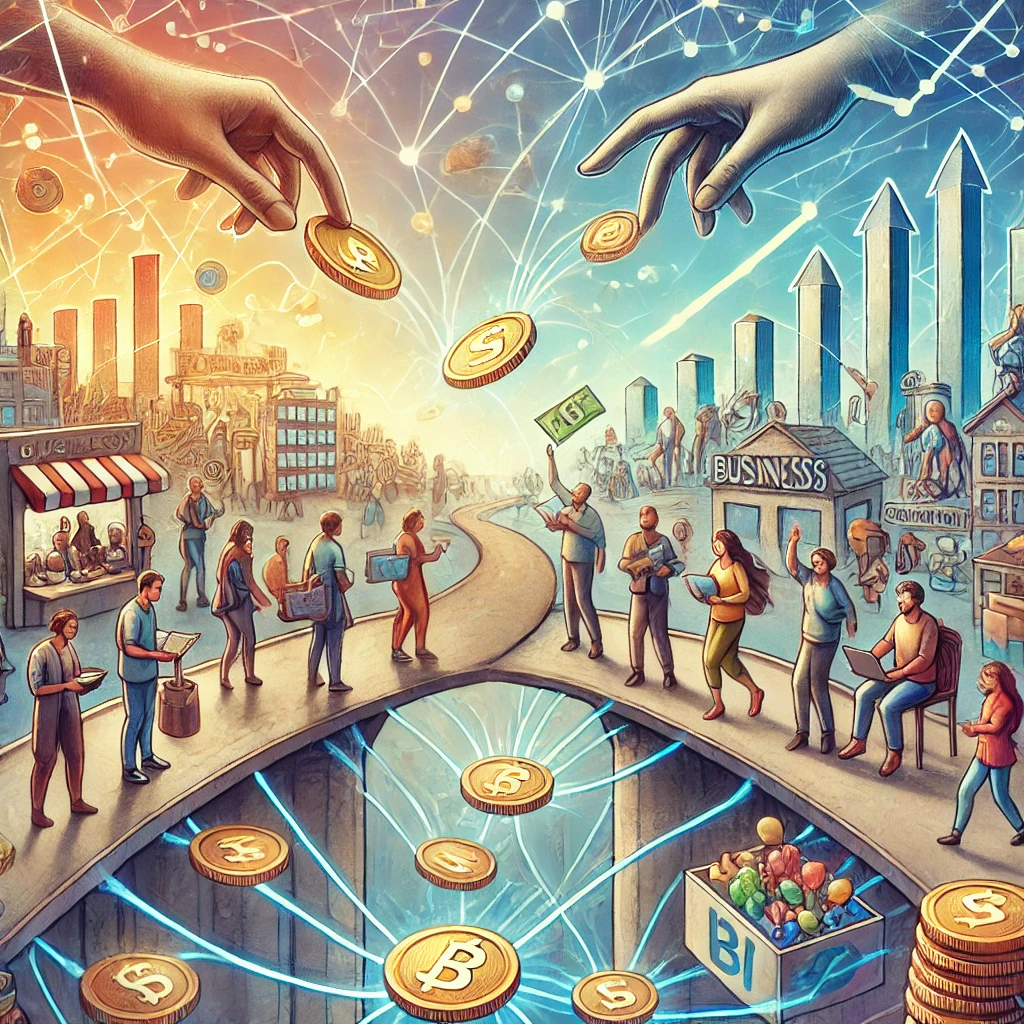
In an era marked by significant economic disparity and technological upheaval, Universal Basic Income (UBI) has emerged as a beacon of hope and a topic of vigorous debate. UBI proposes a radical restructuring of social welfare: a periodic, unconditional payment that every citizen receives, regardless of income or employment status. This blog post explores how UBI could help bridge economic classes without undermining the free market system, empowering citizens with the freedom to make their own economic choices.
Bridging Economic Classes
Economic Security: UBI provides a safety net that guarantees financial security to all citizens, effectively reducing poverty levels and ensuring a basic standard of living. This floor of security not only mitigates the fear and stress associated with financial crises but lays a foundation from which all citizens can aspire to more significant achievements.
Reduced Inequality: Data from pilot programs worldwide suggest that UBI can significantly decrease economic inequality. By leveling the playing field, UBI allows individuals in lower economic strata to improve their life circumstances, which can lead to a more equitable society.
Social Mobility: With the basic needs guaranteed, individuals from disadvantaged backgrounds can invest in their education, nurture their talents, and partake in entrepreneurial endeavors. This enhanced social mobility fosters a more dynamic and innovative workforce, essential in a rapidly changing global economy.
Supporting a Free Market System
Consumer Choice: At its core, UBI champions the free market by ensuring all consumers have money to spend according to their preferences. This autonomy supports a vibrant market where businesses must innovate and compete to attract a more widespread and empowered customer base.
Market Responsiveness: A guaranteed income increases the purchasing power of millions, potentially boosting demand for goods and services. Fueled by a more robust consumer market, this economic stimulus an lead to job creation and business expansion.
Entrepreneurship Boost: The economic security afforded by UBI can encourage individuals to take business risks without the fear of losing their livelihood. This could lead to a surge in startups and innovative projects that bring new products and services to the market, further stimulating economic growth and employment.
Additional Benefits
Administrative Efficiency: UBI could streamline the welfare system by replacing overlapping assistance programs, reducing bureaucracy, and cutting administrative costs. This simplification would make the system more efficient and ensure that aid is delivered directly to those in need without complex eligibility criteria.
Improved Mental Health: Financial insecurity is a significant stressor for many individuals. Studies indicate that UBI can lead to better mental health outcomes by reducing anxiety and depression associated with financial pressures.
Support During Economic Transitions: As automation and globalization reshape labor markets, UBI is a stabilizing force, providing individuals with the security to retrain or pivot to new industries without immediate economic pressure.
Potential Challenges and Counterarguments
Critics argue that UBI could lead to inflation, discourage employment, and strain public finances. However, evidence from various UBI trials shows minimal impact on work incentives, with most recipients using the funds to enhance their living standards and invest in education. Funding models for UBI often include restructured tax systems or reallocating existing welfare budgets, presenting viable paths to implementation.
Universal Basic Income represents a bold step towards a more inclusive and fair society. By providing unconditional financial support to all citizens, UBI has the potential to bridge economic divides while bolstering the principles of a free market economy. As we move forward, it is crucial to continue exploring this concept through further research and pilot programs, ensuring that the transition to such a system addresses the nuanced needs of our diverse society.